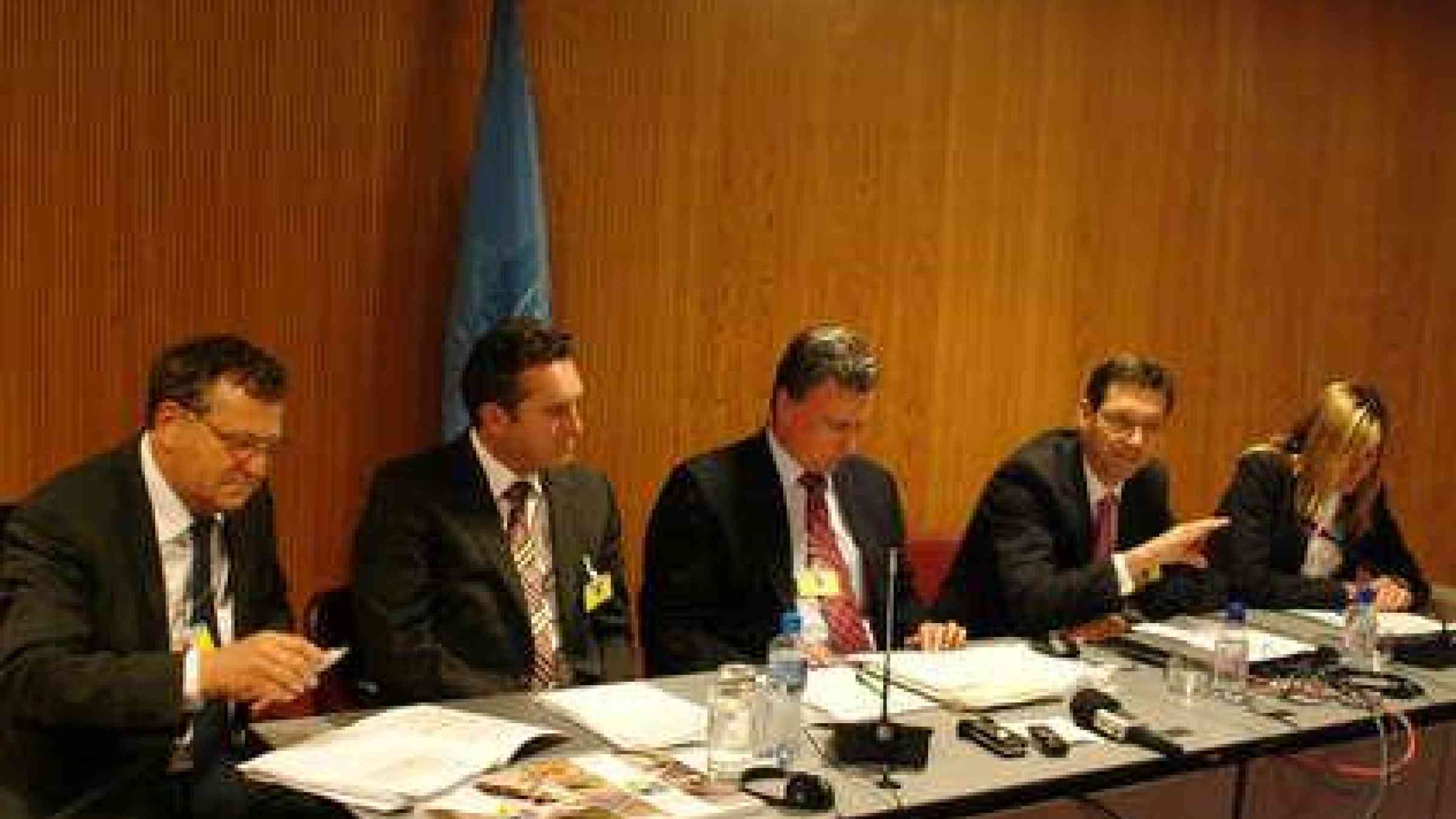Finance, insurance, construction sectors announced joint private sector commitment to tackle disaster vulnerability

Geneva – Representatives of the finance, insurance and construction sector at the Global Platform yesterday sounded a call for action on the five essentials for business in disaster risk reduction, in line with the main finding of the United Nations Global Assessment Report on Disaster Risk Reduction that losses from disasters are rising faster than gains made through economic growth.
The Global Platform – held in Geneva every two years -- is the world’s main forum for disaster risk reduction, attracting nearly 3,000 participants this year and includes a bigger private sector contingent than the previous Platform. The Platform opened yesterday and ends on Friday, 13 May.
In an announcement to the press, WillisRe, Credit Suisse, Titan America, Cisco Internet Business Solutions Group and MunichRe Foundation called on fellow members of the private sector to: build partnerships to analyze the root causes of non-resilient activity; leverage private sector expertise in construction, communications, financing, transport and contingency planning; spread knowledge about risk, prediction, forecasting and early warning; assist governments to conduct risk assessments; and help develop standards and procedures for enhancing resilience.
“We commit voluntarily and to the best of our abilities to create awareness within and outside our organizations to identify vulnerability and their root causes in our areas of activity and influence,” said Peter Gruetter, CISCO Internet Business Solutions Group, adding that the group recognized the leading role of the International Strategy for Disaster Reduction – established by the United Nations in 2000 to consider actions for reducing risk – and the Hyogo Framework for Action, which is the world’s only internationally-recognized blueprint for disaster risk reduction.
According to a report put together by the United Nations secretariat for the International Strategy for Disaster Reduction, which was launched Tuesday at the 2011 Global Platform for Disaster Risk Reduction, disaster-related losses are increasing across all regions, threatening the economies of low- and middle-income countries as well as outpacing wealth gains across many of the world’s more affluent nations.
Disasters happen because societies across the world remain vulnerable and exposed, and not enough is currently being done to adjust development patterns to cater to more frequent and extreme catastrophes, as well as emerging risks – such as from climate change, rapid urbanization, and insufficient disaster management and planning.
They can disrupt energy supplies and transmission, public infrastructure and distribution networks, causing operational and supply chain disruptions to businesses, added Tricia Holly, a member of the UNISDR Private Sector Advisory Group from the WillisRe Research Network.
While the primary responsibility for protecting communities is vested in national and local governments, the private sector plays a crucial role in managing disaster risks and building resilience, said John Tobin from Credit Suisse. “The private sector shares both the consequences of risks and a responsibility to act in reducing them. In most countries, the private sector is the primary generator of [wealth]… it also has the know-how, organization, resources and capacity to provide solutions.”
Aris Papadopoulous, Chief Executive of Titan America, stressed the link between sustainable development and resilience, saying that “sustainability cannot be achieved unless societies both reduce their environmental impacts and become more resilient against natural hazards.”